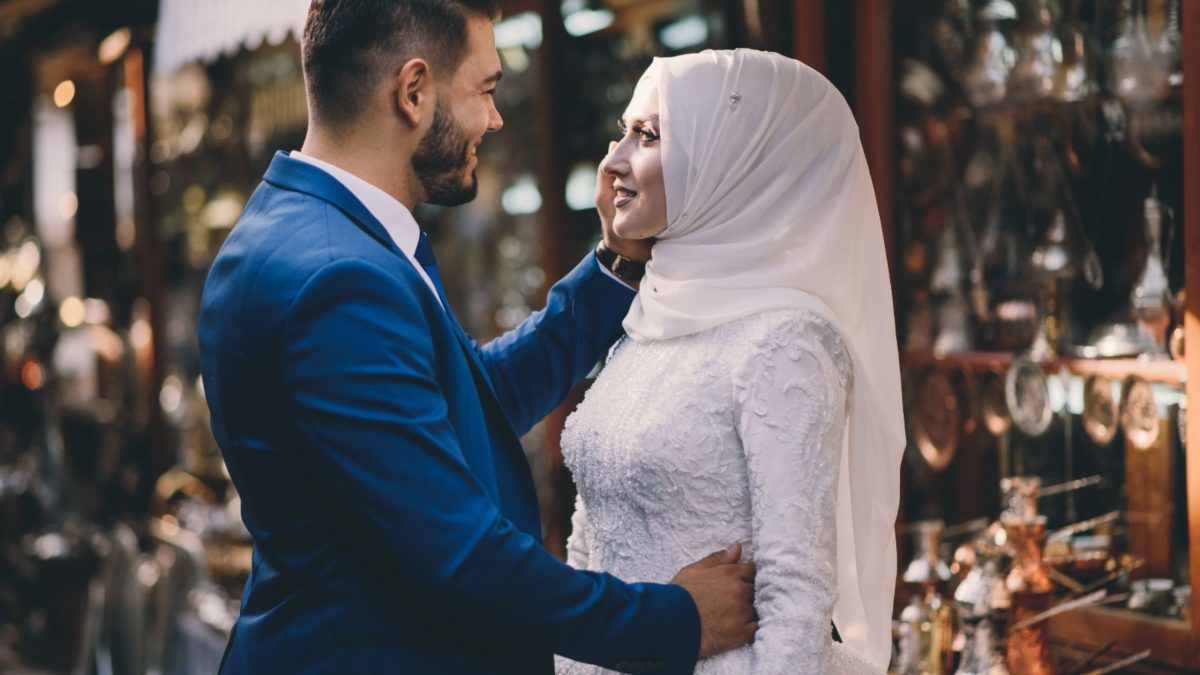Christian Wedding: All You Need to Know

Marriage is a basic necessity for individuals, offering various positive outcomes. Primarily, it establishes a family that provides security and emotional relief. The natural sexual desires are met within the bounds of marriage ensuring a secure and peaceful environment for their fulfillment. Abstinence often leads to physical and psychological issues that also contribute to social problems. Furthermore, marriage serves as the foundation for the continuation of the human race, with children being the joyful fruits of this union. At the end of this blog, you will be able to understand what is the purpose of marriage in Islam.
Marriage is a profound bond that holds deep significance in both spiritual and societal dimensions. This blog aims to explore the purpose of marriage in Islam with special emphasis on spiritual growth, companionship, and reproduction and the challenges faced by modern couples.
The importance of marriage can be seen by the fact that:
The Allah states in the Holy Qur’an: “And among His signs is this, that He created for you mates from among yourselves.” (Qur’an 30:21) and The Prophet (P.B.U.H) said: “There is no better structure founded in Islam other than marriage.” (Wasail al-Shia).
To comprehend the essence of marriage, one must dig into its conceptual roots within Islam. In Quranic teachings and the Sunnah, this sacred union represents not only a legal contract but a spiritual journey where a man and a woman strive for completeness.
The Prophet stated: “Whoever gets married has completed half of his religion Islam.” (Ibid)
Read Also : 10 Reasons Men Have Emotional Affairs
Spiritual Growth: Beyond its legal and societal aspects, marriage in Islam is a conduit for spiritual elevation. It provides an environment where individuals can improve their connection with Allah. It contributes to their personal and collective Iman.
Companionship: The companionship in marriage provides spiritual and emotional support. It includes shared goals, mutual encouragement, and a commitment to face the challenges of life unitedly.
Procreation: Islam places a significant emphasis on procreation within the marital framework. This involves not only the continuation of family lineage but also the cultivation of righteous generations grounded in Islamic values.
The Prophet of Allah (P.B.U.H) said, “Whoever chooses to follow my tradition, one must enter into marriage and contribute to the Muslim population through this union, thereby enhancing the numbers of my community. so that on the Day of Resurrection, I shall confront other Ummah (nations) with the great numbers of my Ummah. ” (Ibid)
Encourages Modesty: Marriage in Islam acts as a safeguard against immodesty by providing a lawful and structured avenue for the fulfillment of natural human desires. The commitment and mutual respect within the marital relationship discourage inappropriate behaviors and encourage modesty and decency.
Responsibility: Getting married is like becoming a grown-up with important duties. It helps people learn to be responsible as husbands and fathers, or wives and mothers. Marriage is a big commitment and a shared responsibility between a man and a woman right from the beginning.
As Allah says, “Men are protectors and maintainers of women because Allah has made one of them excel over the other…” (Qur’an, 4:34).
Read Also : Significance of Marriage Counseling in Muslims
Miscommunication: A prevalent challenge in modern marriages is the breakdown of effective communication. Misunderstandings often arise, leading to conflicts that can strain the marital bond.
Cultural Pressures: Balancing cultural expectations within the context of Islamic principles poses a dilemma for many couples. Striking the right balance becomes essential to maintaining peace and harmony.
Balancing Roles: The evolving roles of spouses in modern society bring about challenges in defining and balancing responsibilities. Negotiating these roles requires an equilibrium to prevent tension between and to avoid emotional exhaustion to one-sided efforts.
Effective Communication: Overcoming the challenge of miscommunication involves promoting open and honest dialogue. A commitment to understanding each other’s perspectives is important for resolving difficult conflicts.
Respecting Cultural Differences: Acknowledging and respecting cultural disparities within the framework of Islamic principles is essential. This cultural sensitivity enhances mutual understanding and acceptance.
Role Equality: Achieving balance in roles and responsibilities requires a mutual agreement that respects the capabilities and ambitions of each spouse. This equality promotes a cooperative and harmonious marital bond and also prevents the exhaustion from the fulfillment of roles.
In summation, marriage in Islam serves as a conduit for spiritual growth, companionship, and procreation. Navigating the complexities of modern marriages involves addressing challenges such as effective communication, cultural understanding, and role equality. By upholding these principles, couples can embark on a fulfilling journey guided by Islamic teachings, fostering a union that transcends the temporal and touches the divine.
A: The purpose of marriage in Islam is to have a sense of peace, love, and affection between couples.
A: Marriage provides benefits like protecting Iman and to fulfill desires without any immodesty or sin.
A: In Islam, the idea of “pre-marital love” itself is not forbidden (haram), but the expression of romantic or intimate feelings outside the context of marriage is considered haram.